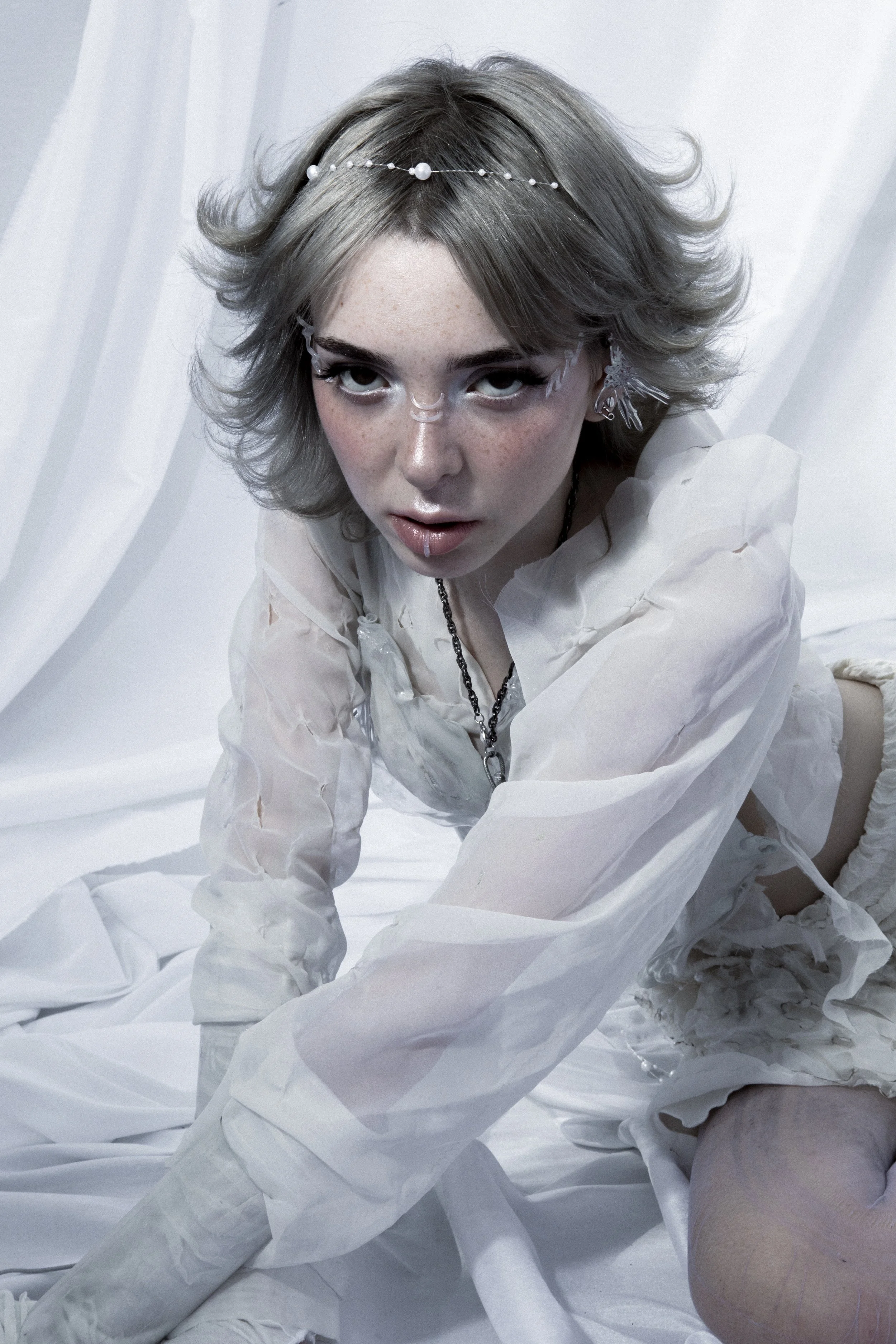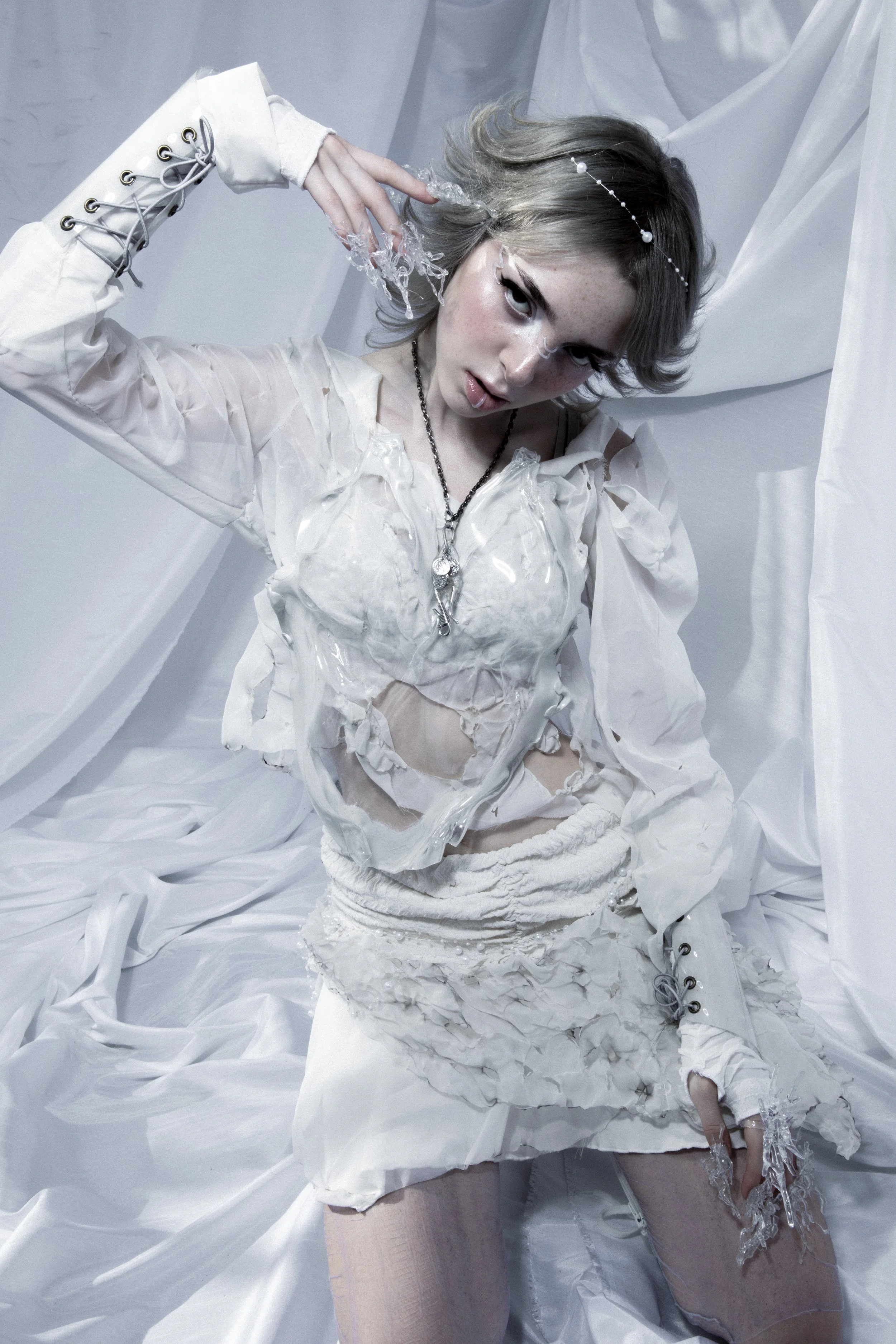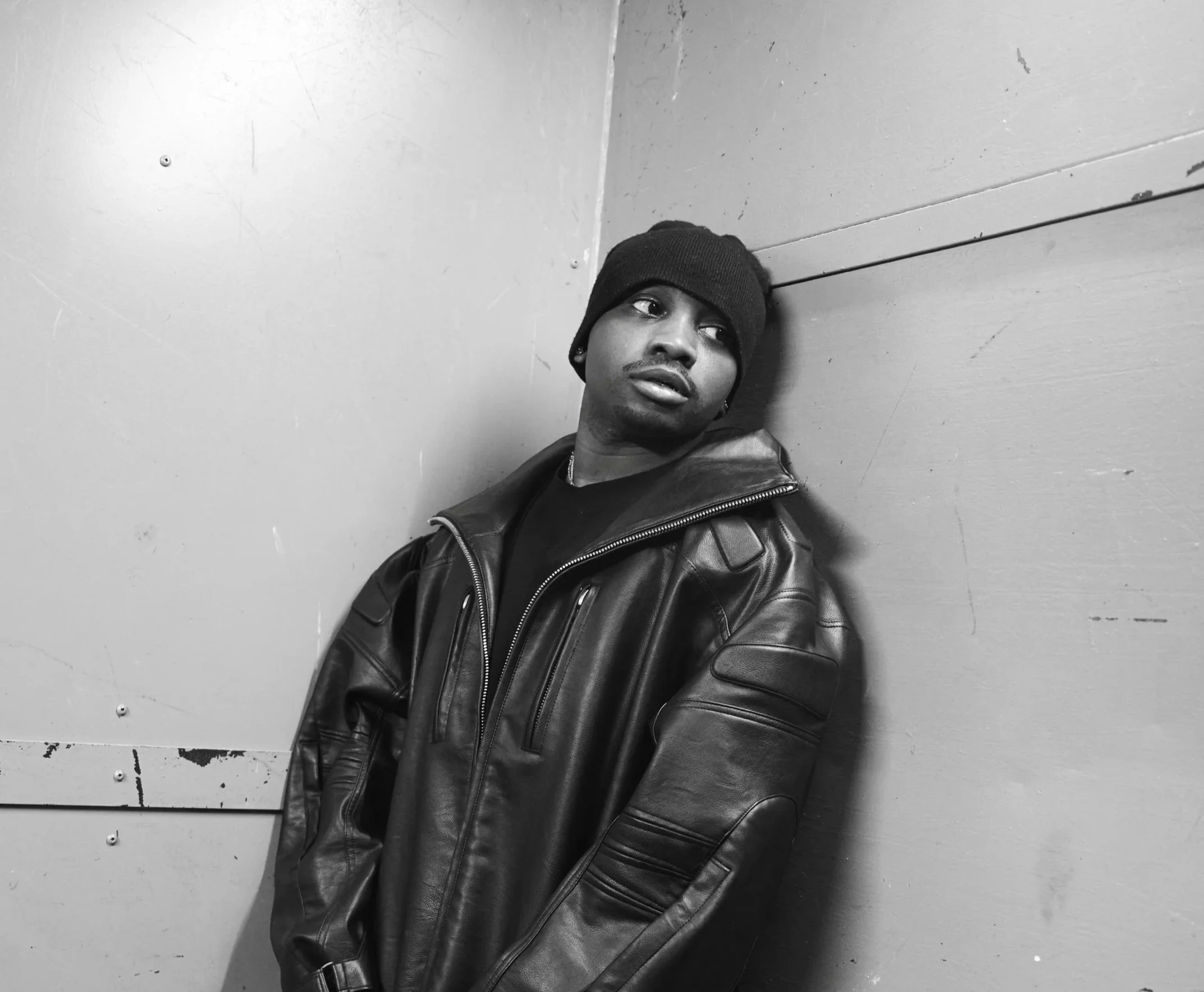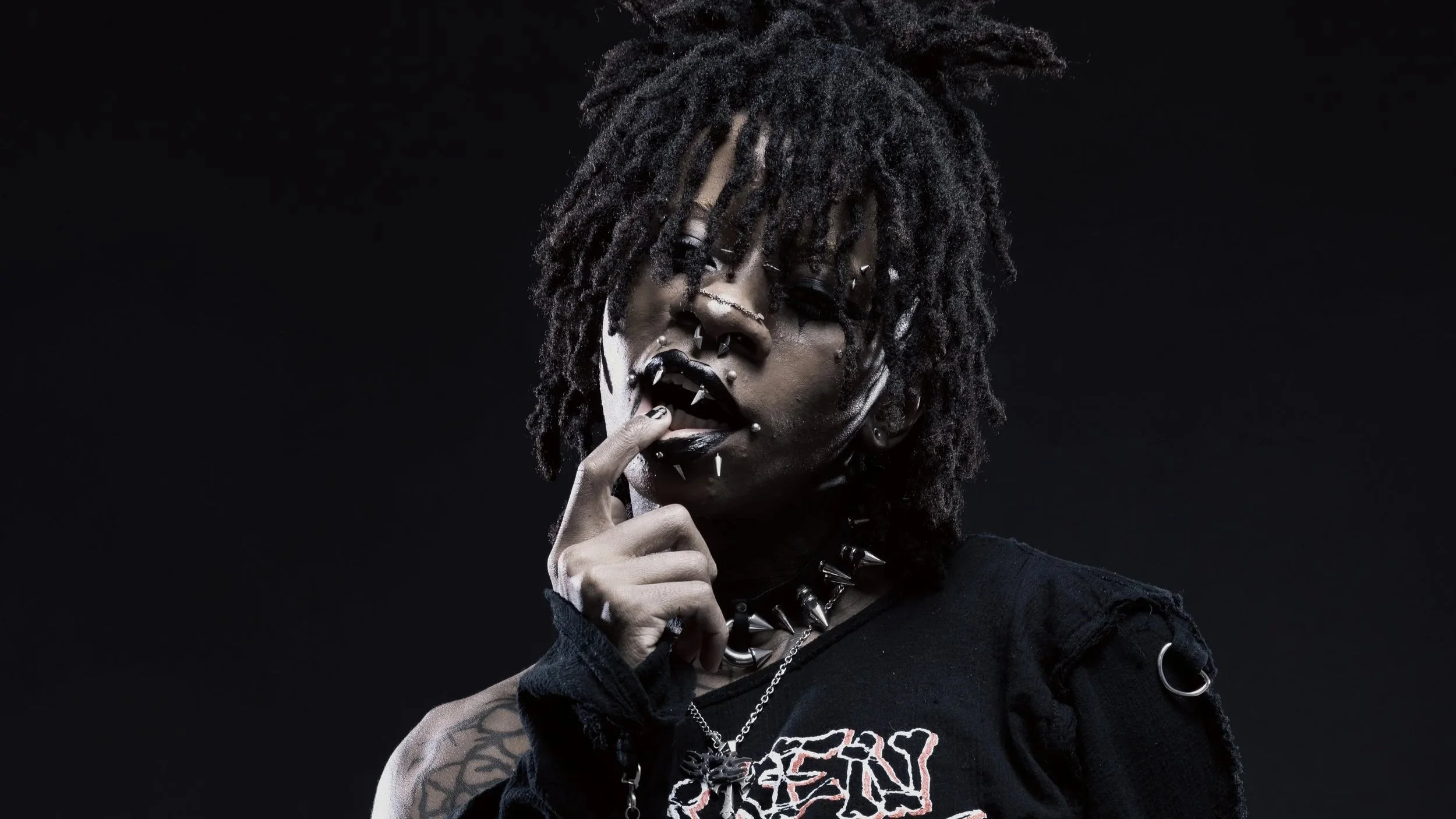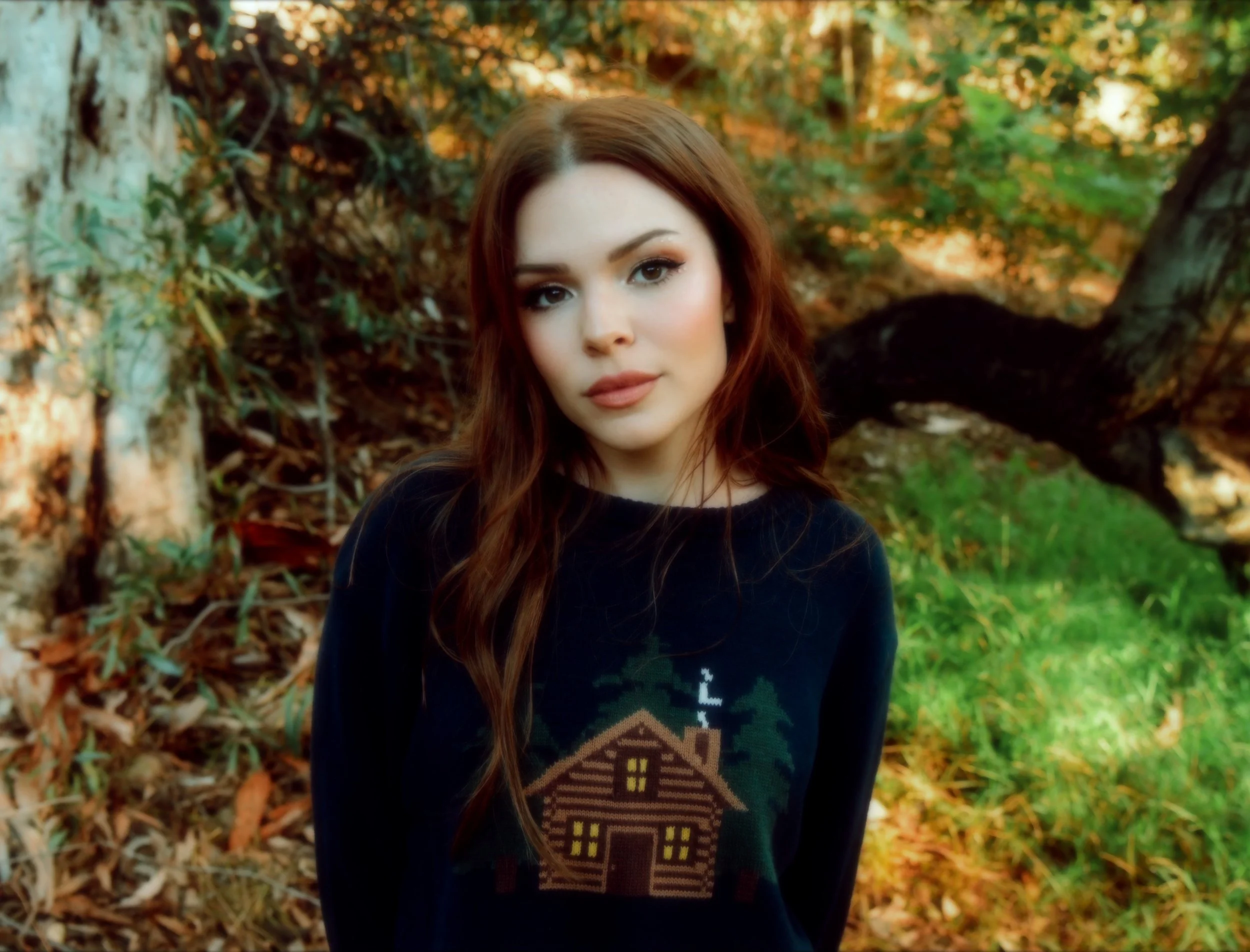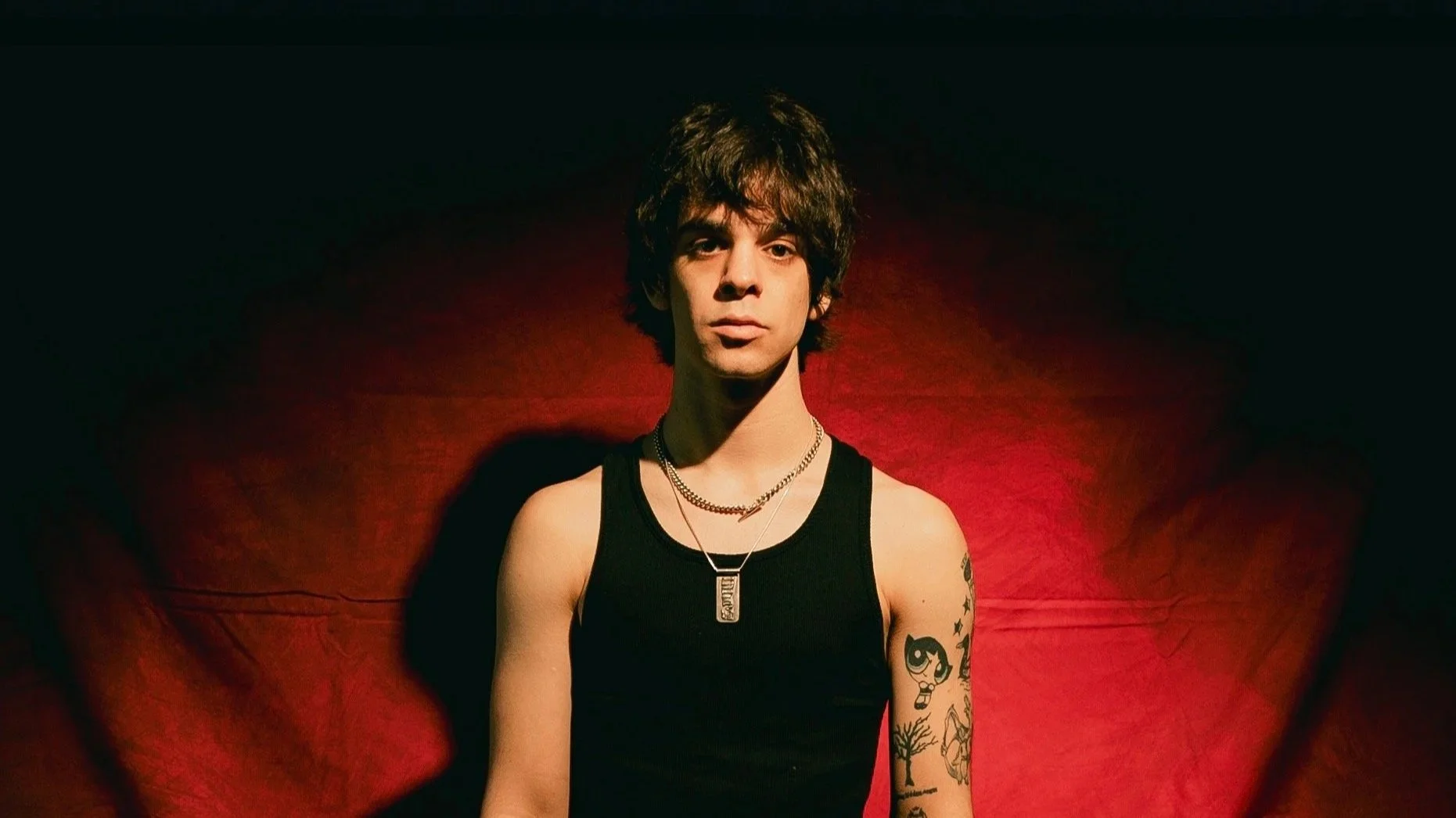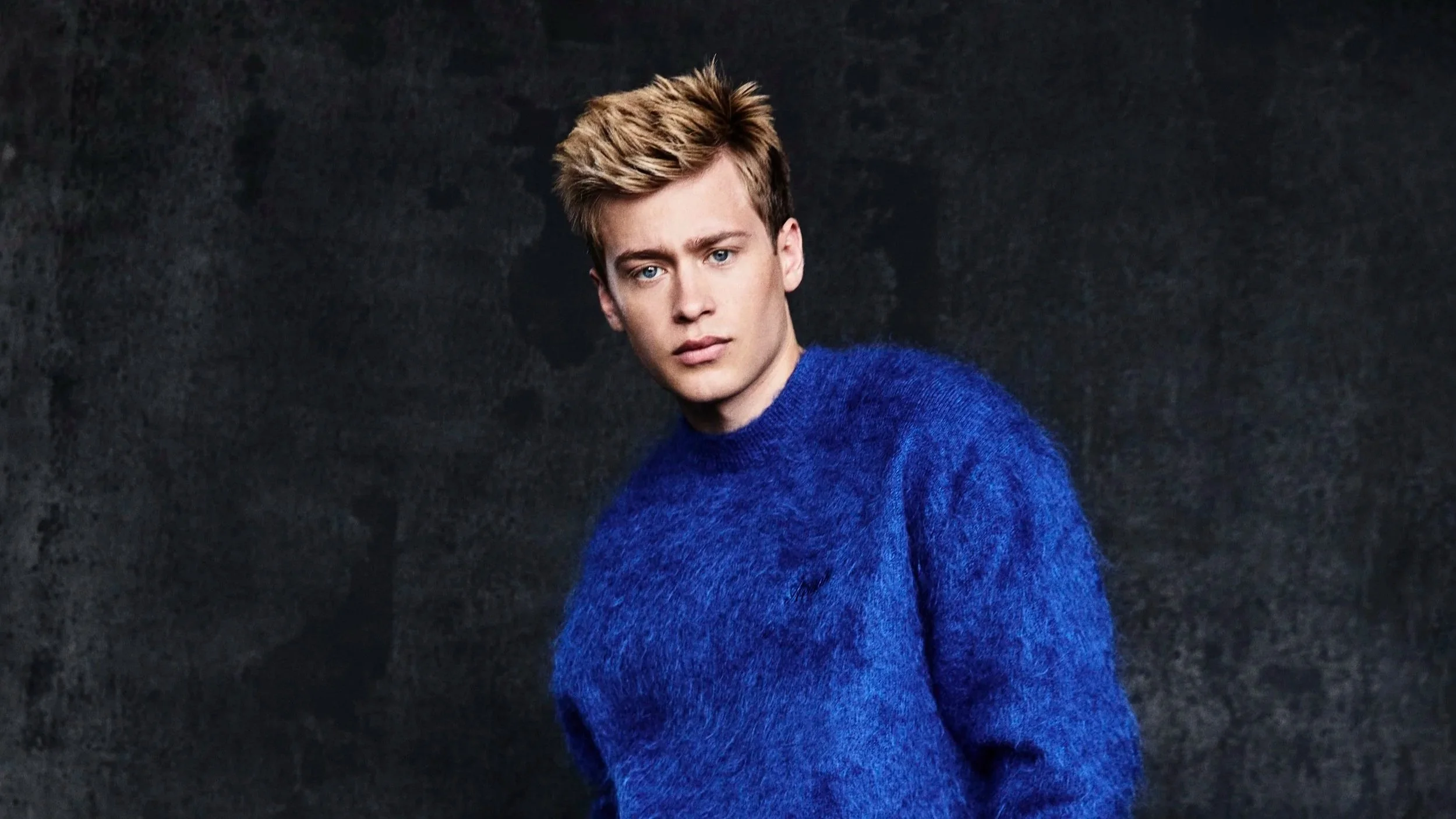From Neon to "muddy": The Reinvention of Pop Powerhouse Sophie Powers
21-year-old Toronto-born, Los Angeles–based artist Sophie Powers has spent recent years turning pop into a playground for creative ‘outcasts’, pairing serrated hooks with an “apocalyptic” fashion language that feels glamorous, abrasive, defiantly “no rules.” Now, Powers unveils her latest offering “muddy,” a darkly playful single that fuses gloss and grit—electronic textures smeared with feeling, polished enough to gleam yet messy enough to feel real. It’s a clear pivot from the bubblegum-neon of her early releases toward something raw and more unapologetic than we’ve seen from the dynamic artist.
Leading up to this point, Powers’ path has been fast and hands-on. She moved to L.A. at 16, issued her debut EP Red in Revenge, then followed with 2024’s Glitch: Lvl 1 and her first headlining tour. Along the way, she’s stacked 80M+ global streams and built a fervent audience across Instagram and TikTok, yet the metrics are just the surface. The connective tissue is curation. Sophie treats songs, styling, and visuals as one ecosystem. One week she’s onstage before Charli XCX at Seoul’s One Universe Festival; the next she’s weaving into K-pop with ILLIT on the hypnotic “jellyous” rework, or trading ideas with collaborators like Grimes, Dillon Francis, and Baby Tate.
And with “muddy,” Powers opens a chapter that leans into desire’s chaos and the thrill of coloring outside the lines. If the early era was an introduction, this one is a blueprint that welcomes the chaotic, the maximal, the emotional, and anyone who’s ever been told their feelings are “too much.” Consider this your entry point; the rest of the ride has no guardrails.
“muddy” leans into the “messy” side of connection. What specific moment or image sparked the song, and how did you translate that into its electronic/industrial textures?
Sophie Powers: Physical touch is one of the messiest love languages, and it wasn’t until I got into this relationship that the idea really came into perspective. My partner’s love language is touch while mine isn’t, so “muddy” came out of navigating that difference. I leaned into electronic and industrial textures to capture that chaos, pairing them with graphic, visual lyrics to show I’m game for whatever with this person.
You’ve recently moved from a bubblegum-neon aesthetic to something grittier and more cinematic. What rules did you consciously break in your visual direction for this era?
Sophie Powers: As I started getting more into film, I realized I didn’t want my visuals to just be “aesthetic”, I wanted them to carry the same grit and tension you’d see in cinema. That’s what pushed me to break away from the bubblegum-neon era and lean into something darker and more raw. I drew a lot of inspiration from directors like Lynne Ramsay, who has such a powerful way of capturing chaos and emotion without making it glossy. That influence gave me permission to break rules around perfection and lean into visuals that feel more visceral and cinematic. As an artist, I always want to push myself to keep raising the bar.
As a designer, how does your fashion language inform the way you write and produce? Do garments ever lead the song, or vice versa?
Sophie Powers: Fashion and music are basically the same language for me, just different ways of saying the same thing. Thanks to my synesthesia, I can’t really separate colors and sounds anyway. Half the time I’ll hear a song and instantly see it as an outfit, and other times I’ll sketch something and think, ‘Well, that clearly needs a soundtrack.’ It’s less some big calculated process and more just me letting one medium bleed into the other.
You recently worked with ILLIT’s on “jellyous” and wrote for IVE on an upcoming track. What did those experiences teach you about pop’s global vocabulary—and about your own stagecraft?
Sophie Powers: It’s so funny because I was creating K-pop and writing for it a year prior to the IVE and ILLIT releases. I’ve actually been a fan of K-pop since late 2016, so being able to contribute to it feels really full circle. I believe my American Idol audition blew up in Korea as well, which only amplified things for me out there. I spent a lot of time in Korea and Japan this year, and that gave me a firsthand look at how different the pop vocabulary can be, but also how universal it is at its core. Writing for artists like IVE and ILLIT showed me how much precision and detail goes into every layer of K-pop, and that really made me rethink my own stagecraft. It pushed me to put more intention behind every lyric, movement, and visual, treating pop not just as a sound, but as a full-spectrum art form.
When listeners hit play on “muddy,” what do you want them to carry into their own lives—permission, provocation, or something else entirely?
Sophie Powers: I want listeners to walk away from muddy feeling confident in being loved and felt, and in chasing after what they truly want. Part of that is realizing you don’t have to look perfect all the time for someone else; it’s okay to get messy and muddy for them. Honestly, it feels terrible to even talk about, but that’s exactly why the lyrics are written that way. At its core, the song is about fully letting someone’s presence in, physically and mentally, without walls or perfection getting in the way.
After moving to L.A. at just 16, you managed to build an audience pretty quickly. What’s a belief about the industry you’ve abandoned over the years—and what’s one you refuse to compromise?
Sophie Powers: When I moved to LA at 16, I thought there was some secret formula to making it in the industry, like if you played by the rules, everything would fall into place. That belief died pretty fast. What I won’t compromise on is authenticity, because the only reason I even have an audience is from being myself, not from chasing someone else’s version of an artist. I’m really grateful for that, because it taught me early on that the only thing worth protecting is your own voice. I also don’t care if people see me as a bitch or controlling for using that very voice to execute my vision.
This year, you’ve also earned a lot of exciting festival opportunities! What’s been the most gratifying part of scaling your show to that size?
Sophie Powers: Watching strangers who had no idea who I was five minutes earlier scream lyrics back at me is the most gratifying and hilarious thing ever. Festivals force you to prove yourself in real time, and seeing the show connect on that scale feels surreal. It’s also a reminder of how far this project has come and how much bigger it can grow.


